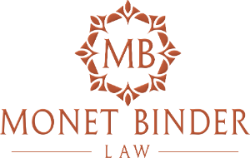It’s the end of the year – a time for planning, Estate Planning. If you’re like most of us, you have had good intentions all year, thinking “this is the year I take care of my Estate Plan and protect the family I love”. You know that this is the only way you can make sure your estate distributed, according to your wishes and without family fighting, after you are gone, or should you become incapacitated.
Without proper planning in advance, your best intentions may not be enough. The following are seven of the most common estate planning mistakes people make:
1. Procrastination. The most detrimental mistake you can make is failing to create any plan at all. If you don’t have an estate plan, your assets will be distributed according to New York State. According to the New York State distribution plan, after administrative costs have been deducted, if you are married, your spouse is entitled to 50% of your estate and the rest is divided among other heirs. If you are single, your estate may go to your children, parents, or siblings. If you have absolutely no living relatives, then your estate will go to the state. This probably is not what you want to happen to your assets. In addition, whether you are married or not and have children, without an estate plan, you will not have a say in who will be the guardian of your children, if you can’t or who will act for you if you become incapacitated.
2. Having a plan, but not having it comply with Jewish law. If you are a Torah observant Jew, there is a halachically prescribed way to distribute your belongings. Without a Will, complying with the Torah laws of yerusha (inheritance), is usually not possible. A non-halachic, secular Will could be problematic if it violates the natural seder (order) of yerusha. Even among families, who live together harmoniously, there is no guarantee that an estate plan that does not comply with halacha will be honored and not challenged.
3. Being penny wise and pound foolish. In this day and age of easy online access to everything, it is surely tempting to find a do-it-yourself online Will service or kit to try and save money. You may even have jotted down some notes and think that should be good enough to let your family know your wishes. Unfortunately, many have found out that boiler plate drafted, fill-in-the-blanks documents have cost them, their estate and their heirs additional money in the end. The state of New York has specific requirements and regulations that govern the drafting and execution of estate planning documents. Failure to adhere to these requirements could result in a judge rejecting your documents and it would be as if you had done no planning at all. Also, it is impossible to know, without a legal education and years of experience, what the right legal solution is to any particular situation and what various planning opportunities are available. By doing it on your own, you could be taking a large risk which can affect your family for generations to come.
4. Not planning for disability. With a properly drafted estate plan, you can specify what will happen to your assets after you’re gone, and, you can also plan for what happens if you become incapacitated while you are still alive. To make sure someone can act on your behalf, I if you can’t act for yourself, important documents such as a power of attorney and health care proxy can be prepared for you. These documents allow you to appoint someone to take care of your finances or speak for you with medical personal, if you are not able.
5. Not funding a Trust. Congratulations! You’ve picked yourself up and had an Estate Plan drafted and signed, so now you can sit and relax – right? Wrong. Once you draft an estate plan, you are not done. If your estate plan includes a Trust, you need to actually fund the Trust. This is done by retitling your assets in the name of the Trust. Without proper funding, a Trust is entirely useless and your estate will go to court – Probate.
6. Not updating your beneficiary designations. You need to periodically review your bank accounts, life insurance policies and particularly, your retirement plan beneficiary designations, to make sure they are not outdated. Retirement accounts are not distributed according to your Will or Trust—they are distributed according to the forms you fill out with the insurance company. You need to make sure you have named a beneficiary and the beneficiary is who you want it to be.
7. Not reviewing the plan. Once your estate plan is in place, you need to keep it up to date. Circumstances change over time and your estate plan needs to reflect these changes. Major changes that may affect your plan include getting married or divorced, having children and grandchildren, or experiencing an increase or decrease in assets. Even if there haven’t been any major changes, you should review your plan periodically to make sure it still expresses your wishes.
To ensure that you’re not making these and other common estate planning mistakes, contact me by calling 718.514.7575 or emailing [email protected]. I can help you protect yourself and your family as well as answer any questions you may have about a comprehensive estate plan.
MONET BINDER, ESQ., has locations in Brooklyn and Queens, and is dedicated to protecting families, their legacies and values. All halachic documents are approved by the BAIS HAVAAD HALACHA CENTER in Lakewood, under the direction of Rabbi Dovid Grossman and the guidance of Harav Shmuel Kaminetsky, shlita, as well as other leading halachic authorities.
The information in this article is intended solely for your information. It does not constitute legal advice, and it should not be relied on without a discussion of your specific situation with an attorney.











